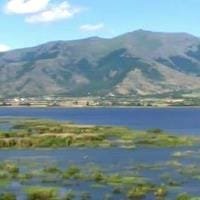(STRASBOURG) – The EU must have restoration measures in place by 2030 covering at least 20% of its land and sea areas, MEPs said Wednesday, as the Parliament adopted its position on the EU nature restoration law.
In their debate, MEPs underlined that restoring the ecosystem is key to combating climate change and biodiversity loss, and reduces risks to food security. They stressed that the draft law does not impose the creation of new protected areas in the EU nor block new renewable energy infrastructure as they added a new article underlining that such installations are overwhelmingly in the public interest.
Parliament highlights that the new law must contribute to reaching the EU’s international commitments, in particular the UN Kunming-Montreal Global Biodiversity framework. MEPs support the Commission’s proposal to put restoration measures in place by 2030 covering at least 20% of all land and sea areas in the EU.
Parliament says that the law shall only apply when the Commission has provided data on the necessary conditions to guarantee long-term food security and when EU countries have quantified the area that needs to be restored to reach the restoration targets for each habitat type. Parliament also foresees a possibility to postpone the targets under exceptional socioeconomic consequences.
Within 12 months of this Regulation entering into force, the Commission would have to assess any gap between restoration financial needs and available EU funding and look into solutions to bridge such a gap, in particular through a dedicated EU instrument.
The Parliament’s position was not wholly welcomed by environmental groups. The WWF said the position was substantially weaker than the original Commission proposal “Even with an unprecedented mobilisation to save Europe’s nature, the Parliament’s position is far from what science tells us is necessary to tackle nature loss and climate change,” it said.
Following the vote, the Parliament is now ready to start negotiations with Council on the final shape of the legislation.
Further information, European Parliament








